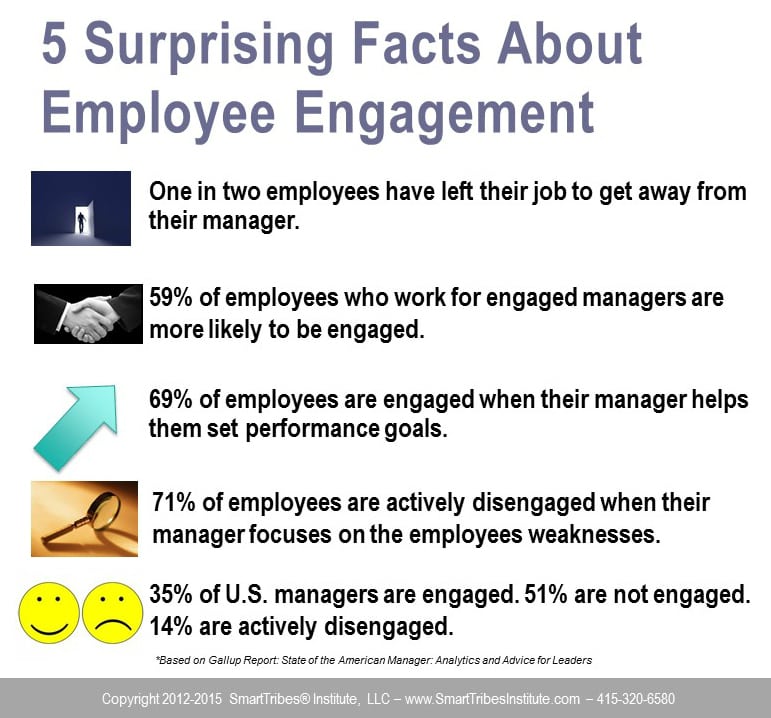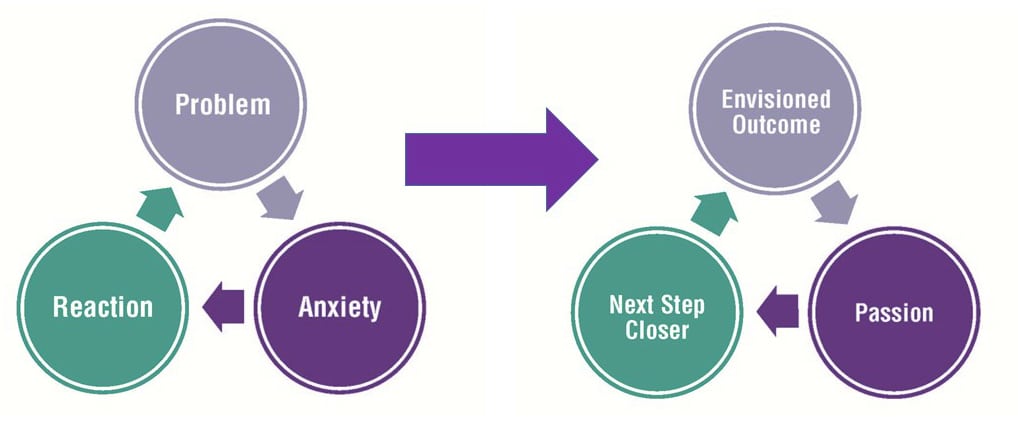Fact: One in two employees have left their job to get away from their manager.
Conclusion: Managers are not creating environments where employees feel motivated or even comfortable.
How many of your top performing team members left their position, leaving you, as their leader, wondering why or what happened? Employees and team members will often take physical action (i.e. quitting) before they ask for what they truly want: clarity, focus on strengths and engaged management.
Clarity Of Our Words
From the leadership perspective, clarity of our words requires us to increase explicit communication and expectations and decrease implicit communication and expectations. Explicit expectations are stated outright – we know exactly what is expected of us in detail. Implicit expectations are those that we figure our team will magically “figure out.” Clear and consistent communication (meetings, phone calls, emails, texts) are key. Why? Communication reinforces the areas/tasks the employee “owns” and reminds them that their managers are easy to approach and willing to listen.
Clarity Of Goals And Expectations
When done well, performance management has a positive impact on employees. What performance management lacks is going above and beyond the basic annual review. According to Gallup, managers need to help their employees set work priorities and performance goals. When managers help set performance goals, employee engagement is 69%. If managers do not help set performance goals, 53% of employees are actively disengaged. The statistics are the same when managers help employees set their work goals. Simply put, your team wants your input and feedback on goals and expectations.
Most of our clients do quarterly check-ins and have removed annual performance reviews all together. Our clients also successfully use Individualized Development Plans (IDPs). The IDP is different from a performance review because it focuses on the future outcomes the team member wants to create and how that is aligned with the mission, vision and values of the organization. Their employees are more productive and creative.
Focus On Strengths And Build Rapport
Fact: Employees who use their strengths every day are six times more likely to be engaged at work.
In a study of U.S. employees, Gallup found that when managers focus on employee’s strengths, 61% of workers are engaged and only 1% are actively disengaged. When employees use their strengths, they are more engaged, perform better and are less likely to leave their company. 71% of your team are actively disengaged when you, as their leader or manager, focus on what they have not done well. Weaknesses shouldn’t be ignored, but a strengths focus offers managers a better chance to develop individuals in the context of who they are, instead of attempting to change their personalities. If you want your team to grow, let them use their natural talents. What made you want to hire them? Our clients have found that by creating an environment where an employee’s natural skill and knowledge can shine encourages these employees to stretch, grow and provide great value to the company.
Stop scaring your team into mediocrity and start building rapport. Raise them up by focusing on their strengths and engaging them at a level where they feel that they matter as a person, not just an employee. Increasing emotional engagement delivers high ROI and better performance.
Our clients have experienced up to 210% increase in annual revenue and profits primarily by raising up their team and learning how to keep the tribe in the Smart State.

Managers Must Be Engaged
Fact: Employees who work for engaged managers are 59% more likely to be engaged themselves.
As a leader, ask yourself – are your managers engaged? If managers aren’t engaged, the team is not engaged. According to Gallup, 35% of U.S. managers are engaged. Why is this important? Because if 35% of U.S. managers are engaged, we are left with only 30% of employees who are engaged. What could your team achieve if this percent grew to 50%, 75%, 90%?
Proactively recruiting talent will increase employee engagement. When we recruit, it is critical to ask the right questions to ensure we place talent in the right roles. Only one in ten people have the natural ability to effectively manage others, while another two in ten have functioning managerial talent. What does this mean? Stop promoting talent to managerial roles based on the wrong reasons. Start investing in coaching and developmental plans for talent that is engaged and able to manage. Ask the right questions.
- Which of our company values are most aligned with your personal values? Why?
- Please tell me some times in your career when you’ve most powerfully embodied our values.
- What are the five career accomplishments you are most proud of? Why?
- What are five adjectives used to describe you by: colleagues, bosses, friends, yourself?
- What makes a working environment most compelling?
We are all human. Everyone must feel safety, belonging and mattering in the workplace as individuals, not just as workers. What happens in the workplace doesn’t stay in the workplace. If we, as humans, aren’t satisfied and engaged at work, our personal lives may suffer. The results of engaged employees include better work performance and increased likelihood of fulfilling personal lives.
How engaged is your team? How engaged would you like them to be?





